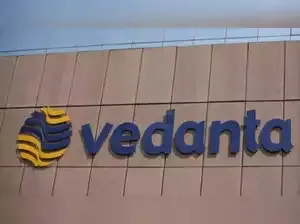
Rising expenses are putting increasing pressure on household savings, and many individuals are searching for safe and reliable investment options. For those who want their money to grow without taking major risks, Kisan Vikas Patra (KVP) offered by the Post Office can be an attractive choice. This government-backed small savings scheme allows investors to double their money in about 115 months (9 years and 7 months), making it one of the most secure long-term investment avenues available today.
What is Kisan Vikas Patra?
Kisan Vikas Patra was first introduced in 1988 with the objective of encouraging people, especially in rural and semi-urban areas, to invest for the long term. Since it carries a sovereign guarantee, the scheme is considered completely safe and trustworthy. Unlike market-linked instruments, the returns on KVP are fixed and assured, which gives small investors financial confidence.
Minimum and Maximum Investment
The scheme is designed to be flexible for both small and large investors. One can start investing in KVP with just ₹1,000. There is no upper limit, meaning individuals can invest as much as they wish. This makes it accessible to a wide range of people, from those with limited savings to those looking to park large sums safely.
Interest Rate and Returns
At present, KVP offers an interest rate of 7.5% per annum, compounded annually. The power of compounding ensures that not only the principal but also the accumulated interest earns further interest. Thanks to this compounding effect, the invested amount doubles in approximately 115 months.
For example:
-
If you invest ₹8,000, the maturity value after 115 months will be ₹16,000.
-
Similarly, an investment of ₹5,000 grows to ₹10,000 at maturity.
This predictable return structure makes KVP especially suitable for conservative investors who want assured growth without worrying about market fluctuations.
Required Documents for KVP Investment
To invest in Kisan Vikas Patra, individuals need to submit some basic documents for identity and address verification. These include:
-
Identity Proof: Aadhaar Card, PAN Card, Voter ID, Passport, or Driving License
-
Address Proof: Aadhaar Card, Passport, Bank Passbook, or Utility Bill
-
Photographs: Recent passport-sized photo
Additional requirements include:
-
PAN Card is mandatory for investments above ₹50,000.
-
Income proof (Salary slip, Bank Statement, or ITR) is required for investments above ₹10 lakh.
How to Apply for KVP?
The application process for KVP is simple and can be done through the nearest Post Office or select banks authorized to sell the certificate. Investors need to fill out Form A, providing details like name, address, mobile number, investment amount, mode of payment, and nominee details. Along with the form, KYC documents must be submitted.
Payment options include:
-
Cash (only up to ₹50,000)
-
Cheque, Demand Draft, or Online transfer (NEFT/RTGS) for larger amounts
After verification, investors are issued a Kisan Vikas Patra Certificate, which must be kept safely as it is required for redemption at maturity.
Why Choose KVP?
-
Guaranteed Returns: Unlike mutual funds or stocks, returns are not affected by market volatility.
-
Long-Term Wealth Creation: The scheme encourages disciplined savings and ensures wealth grows steadily.
-
Flexibility: No maximum cap on investment makes it suitable for individuals with different saving capacities.
-
Government Backed: Full sovereign guarantee ensures zero default risk.
Final Word
In today’s uncertain financial environment, Kisan Vikas Patra offers a blend of security and assured growth. While the lock-in period of over 9 years may seem long, the certainty of doubling your money makes it ideal for risk-averse investors looking for stable returns. Whether you are a salaried professional planning for future expenses or a retiree seeking safe investment options, KVP is a reliable scheme worth considering.
-
Mamata Banerjee calls 130th Constitutional Amendment Bill a 'threat to Indian democracy'

-
BRS to decide on vice-presidential poll support, rules out backing Congress nominee

-
Voda Idea rings in relief: Subscriber losses hit record low since merger

-
Big private hospitals resist insurers' common empanelment proposal

-
Vedanta demerger deadline at risk as NCLT defers hearing
